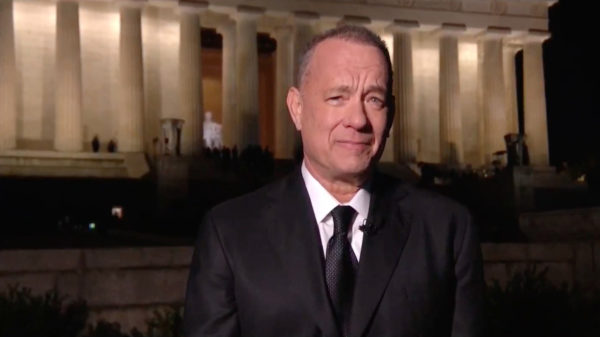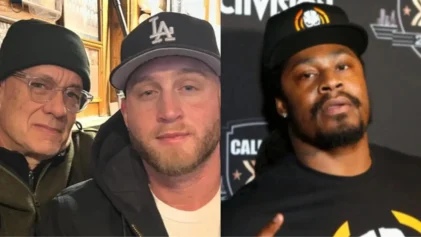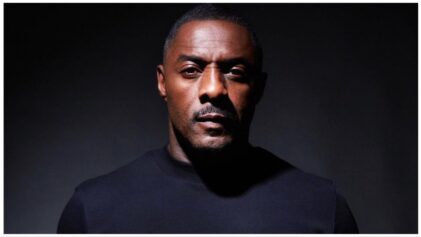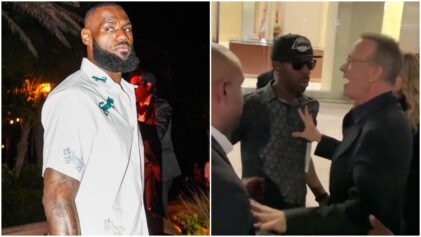“How different would perspectives be had we all been taught about Tulsa in 1921, even as early as the fifth grade?”
Actor Tom Hanks posed this question in his vastly talked-about op-ed headlined “Tom Hanks: You Should Learn the Truth About the Tulsa Race Massacre: in the June 4 edition of The New York Times. Just days after the 100th anniversary of atrocity, the veteran actor, who is celebrated for his roles in “Forrest Gump” and “Cast Away,” shed his light on the 1921 incident that cost hundreds of people their lives.

In the essay, Hanks reveals that, like many Americans, he only recently learned of the tragedy. He recalls years of history lessons during his adolescence and community college days as reiterating the accolades of white leaders and only making passing mention of historical Black figures such as Harriet Tubman, Dr. Martin Luther King Jr., and Frederick Douglass. But the lessons of American history never told in a way to offer the full scope of hate and prejudice Black people faced in the United States.
“Many students like me were told that the lynching of Black Americans was tragic but not that these public murders were commonplace and often lauded by local papers and law enforcement,” wrote the six-time Oscar award winner.
“History was mostly written by white people about white people like me, while the history of Black people — including the horrors of Tulsa — was too often left out,” he continued.
“But for all my study, I never read a page of any school history book about how, in 1921, a mob of white people burned down a place called Black Wall Street, killed as many as 300 of its Black citizens and displaced thousands of Black Americans who lived in Tulsa, Okla.”
After World War I Tulsa became home to a community of Black affluent families and entrepreneurs who planted roots in the city’s Greenwood District. The area, which became known as “The Black Wall Street,” boasted successful businesses, churches, schools, a hospital, and more than 1,000 homes. But allegations of an incident involving a Black teen and a white teenage girl on an elevator sparked fury around the town, and when Black men moved to the city jail to protect the arrested teenager from being lynched by an angry mob, the resulting confrontation sparked an all-out attack by the city’s whites on their Black neighbors. At the boiling point, June 1, those mobs moved in on the Greenwood District where they looted businesses, set them ablaze, and ended hundreds of Black lives. All that remained in the district in the aftermath were charred remnants of home and Black success.
The actor even called out Hollywood for electing to not bringing the story to audiences much sooner. “My chosen industry didn’t take on the subject in films and shows until recently.”
Shows like “Watchmen” and “Lovecraft Country” both gave viewers a glimpse into the tragedy in 2020. This year, basketball star Russell Westbrook produced a documentary, “Tulsa Burning,” for the History Channel which examined the racist fueled violence that remains largely absent from school curriculums in the U.S.
Hanks hypothesized that the tragedy remains “systematically ignored” because of its raw look at the hatred in America that has continuously cost Black Americans their lives. About that fabled truth of all Americans being free and created equally, Hanks held nothing back. “Tell that to the century-old survivors of Tulsa and their offspring. And teach the truth to the white descendants of those in the mob that destroyed Black Wall Street.”
“Should our schools now teach the truth about Tulsa? Yes, and they should also stop the battle to whitewash curriculums to avoid discomfort for students. America’s history is messy but knowing that makes us a wiser and stronger people.”
On social media, Hanks was lauded for calling out the entertainment industry and America for whitewashing its history.
“Tom Hanks is a white man who is trying his best. Others should take heed.”
“The whitewashing of history is one of the main reasons I decided to homeschool my daughter. I didn’t learn about Tulsa or Juneteenth until I was in my 30s. I don’t want her to be as naive and uninformed.”
“Spot on! We aren’t guilty of the terrible things the US has done, but we have the responsibility of learning it and making sure it doesn’t happen again.”


